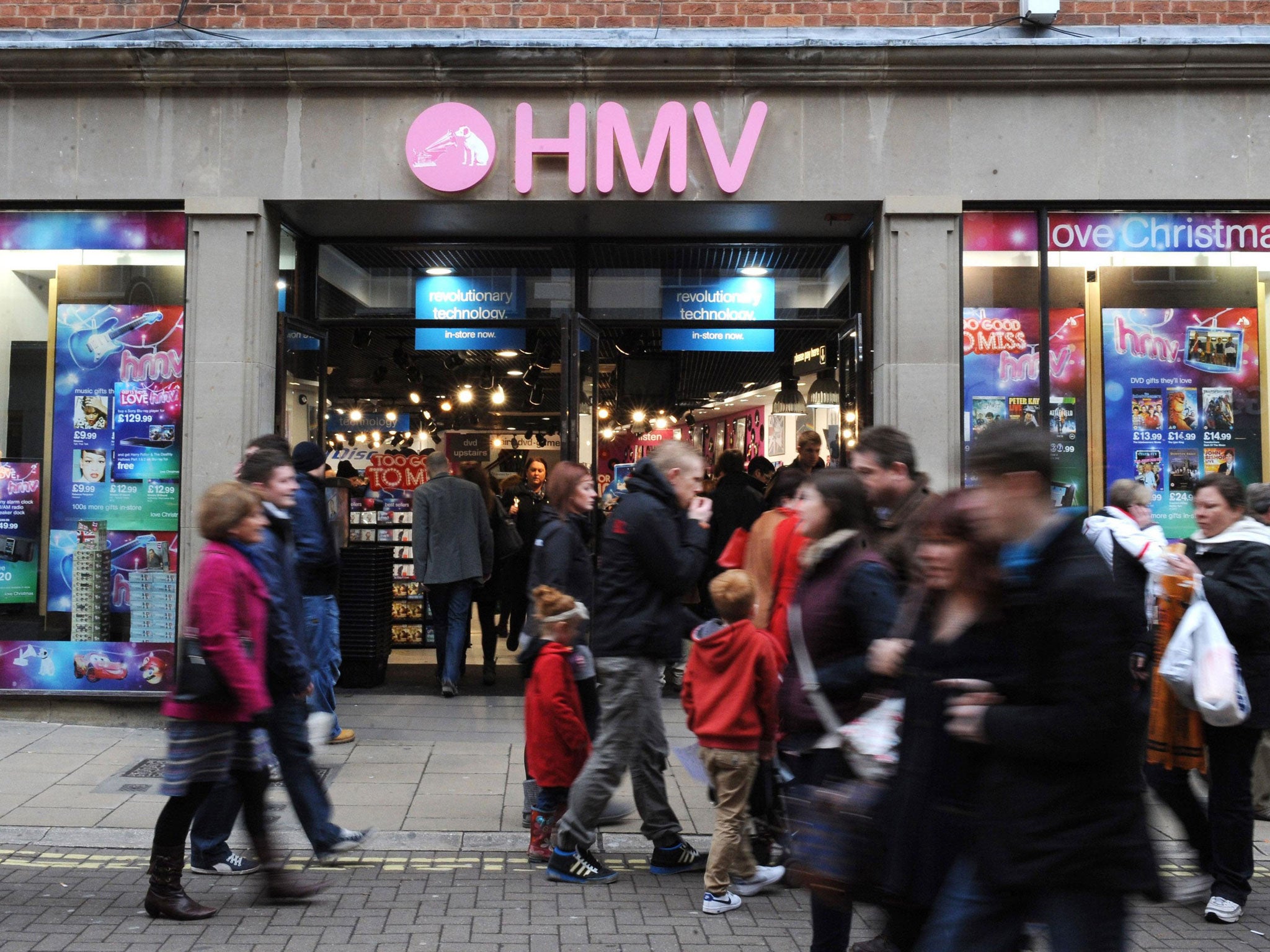It will take more than sweets to make customers stay with HMV
Online sales and illegal downloads may see HMV leave the high street

Your support helps us to tell the story
From reproductive rights to climate change to Big Tech, The Independent is on the ground when the story is developing. Whether it's investigating the financials of Elon Musk's pro-Trump PAC or producing our latest documentary, 'The A Word', which shines a light on the American women fighting for reproductive rights, we know how important it is to parse out the facts from the messaging.
At such a critical moment in US history, we need reporters on the ground. Your donation allows us to keep sending journalists to speak to both sides of the story.
The Independent is trusted by Americans across the entire political spectrum. And unlike many other quality news outlets, we choose not to lock Americans out of our reporting and analysis with paywalls. We believe quality journalism should be available to everyone, paid for by those who can afford it.
Your support makes all the difference.And there he was – a 20-something Sales Assistant in a santa hat, walking up and down the Noah’s Ark-like queue that stretched from the tills at the front to the vinyl section at the back. He was offering the customers sweets in a bid to make them stay. The idea was presumably to convince them that it would be worth them queuing up (listening to Frank Sinatra, Mariah Carey et al) long enough for them to actually end up paying for the things they’d selected from the shop floor.
It’s been a tough week for high street music retailer HMV. After suffering a 40 per cent drop in shares on Thursday, at the time of writing they’ve now sunk to 2.4p. But then it’s also been a tough year, so this shouldn’t really come as much of a surprise. In January, reports of an 8.1 per cent fall in sales in the lead up to (last) Christmas prompted a new focus on technology sales for 2012, with 144 stores refitted to accommodate an increased array of gadgets and shiny paraphernalia. As would be expected, technology sales were soon up (by 51 per cent) but this didn’t stop the music giant from going ahead with plans to begin selling off its live music division, HMV Live.
Following the sale of bookseller Waterstones for £53m in 2011, in 2012 HMV then began to dispose of its venues. It accepted £32 million for the Hammersmith Apollo and, earlier this month, £7.3m for various bits of its MAMA Group, the business behind The Forum and festivals Lovebox and GlobalGathering. But the unfortunate truth is that HMV still looks to finish the year saddled with £180m of debt. Who knows – maybe the sweets were actually for the employees?
Joseph Robinson of retail consultancy Columnio has commented: “The unfortunate fact remains that HMV's proposition has become increasingly irrelevant in the modern retail landscape.” Certainly, one of the things which has continued to sap customers from the shop floor this year has been the undeniable temptation for the consumer of the online market. Sure, it might take a few days to get here, but the majority of us would much rather pay less for something online, and from the comfort of our own record collection, than we would traipse down the high-street and queue up to pay for it today with real money.
That said, HMV has, in the past, been criticised for allowing its virtual, online shopping environment to completely contradict its “real life” one. HMV seemed to specialise in offering cut-rate offers online, but then expected you to pay up if you’d gone to the trouble of visiting them in person. Despite the fact that the its high-street incarnation receives over three times as many visits as its online one does (170 million compared to 50 million), you couldn't always find the bargains on the shelves. Online and in-store deals are now consistent, however.
Of course, the greatest irony is that the internet allows you to access most of what HMV’s trying to sell you for free. The idea that anyone would go onto the internet to then place an order for something 3D which would eventually turn up on your doorstep, only for you to then make it ‘2D’ again by listening to, watching, or playing it, is confusing. Whether you stream or illegally download an album, the unfortunate reality is that technology means that you needn’t pay for it if you can’t be bothered to. Ed Sheeran’s ‘+’, for example, is the most illegally downloaded album of 2012 in the UK.
However, what it appears we will pay for (and extortionately at that) is to go and see live music. It’s a paradox in an age that is obsessed with virtual reality and technology. Such is the hype that now surrounds live music, instead of having people at gigs who are there, well, just to enjoy the music, it’s become necessary for them to Tweet, Instagram or even just plain film what is happening on the stage in front of them. YouTube is now full of uploads of performances, only those, unlike the album deep cuts you’ll find on the same user’s channel, will have been paid for.
It was Alanis Morissette who liked to sing about irony and I can’t help but feel that her 1996 single – “Ironic” – would’ve made an apt soundtrack to HMV’s financial year. Whilst they may have been clawing back the millions, they may actually have been getting rid of their most profitable assets – venues.
Join our commenting forum
Join thought-provoking conversations, follow other Independent readers and see their replies
Comments